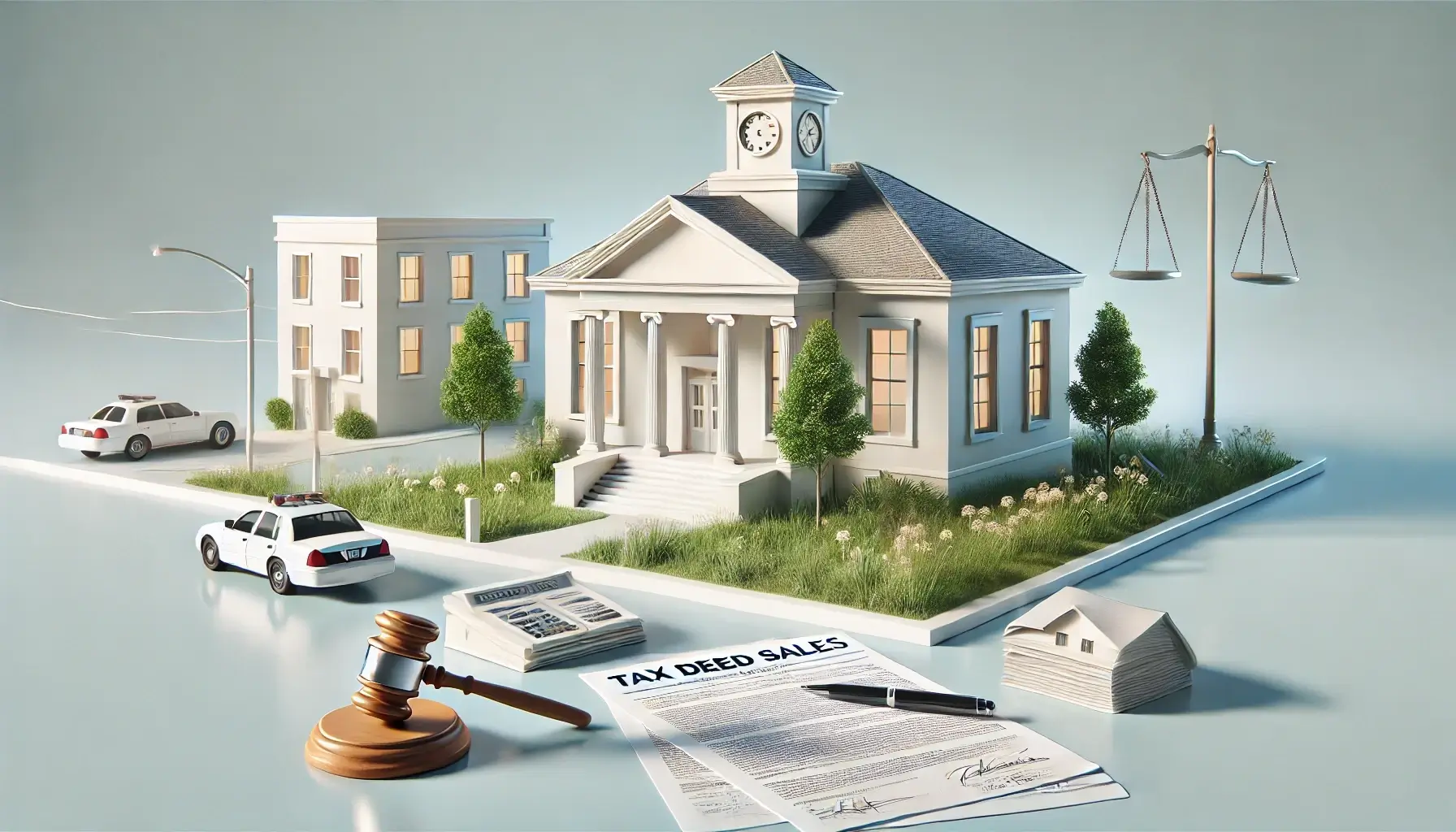Tax deed auctions attract investors with the promise of acquiring properties at prices far below market value. They can be an excellent opportunity for those who want to expand their real estate portfolio, but many first-time investors underestimate the complexities involved. Tax deed auctions differ from traditional real estate purchases in that you are often bidding on properties sight unseen, with limited time for research. Because of this, it’s easy to fall into avoidable traps that reduce profit margins or create unexpected costs.
If you are new to this strategy, it’s important to learn the mistakes that others have made before you. By understanding the risks and preparing yourself, you’ll be better positioned to find profitable tax lien properties for sale while avoiding costly errors.
Overlooking Due Diligence Before Bidding
One of the most common mistakes at tax deed auctions is failing to conduct thorough due diligence. Properties available at auction may come with hidden problems—such as structural damage, code violations, or unpaid liens. Some investors assume that winning the auction automatically clears all obligations. While the tax deed process eliminates many debts, it does not remove everything. For instance, municipal fines or certain liens may remain.
Before you attend an auction, research the property as thoroughly as possible. Look at public records, assess the property’s condition from the outside, and understand the neighborhood. By investing time in research, you can avoid bidding on properties that look like a bargain but actually carry heavy risks.
Confusing Tax Deeds with Tax Liens
Another mistake is mixing up tax deed auctions with tax lien sales. In some states, tax lien properties for sale represent a different investment strategy than tax deed auctions. With a tax lien, you are essentially purchasing the debt owed by the property owner, and your profit comes from interest and penalties when the debt is repaid. With a tax deed, you are bidding to obtain ownership of the property itself.
Understanding the difference between the two is crucial because the rules, timelines, and returns vary. Mixing them up could mean you prepare for the wrong process, miscalculate your budget, or misunderstand how you’ll make money from the investment.
Misjudging Property Value
At a tax deed auction, the starting bid is often just the unpaid taxes plus fees. This can be far lower than the property’s actual market value, which makes the opportunity look irresistible. However, some investors make the mistake of assuming that every property will sell at a bargain.
Market conditions, neighborhood appeal, and the property’s physical state all play a role in determining actual resale value. A house in poor condition in a declining neighborhood may not sell for much, even if you buy it cheaply. The key is to evaluate whether the property has true long-term value and resale potential. Don’t rely only on the fact that you purchased it at auction—focus instead on what it will realistically fetch in the market afterward.

Ignoring Redemption Periods
Many states allow property owners a redemption period after the tax deed auction. During this time, the previous owner can repay the taxes, fees, and penalties to reclaim their property. If you’re unaware of this detail, you may believe you immediately own the property when in fact you might have to wait months—or longer—before taking possession.
This delay can affect your investment timeline, cash flow, and plans for resale or renovation. Always check your state’s rules and understand whether there is a redemption period, how long it lasts, and whether you’ll be refunded if the owner redeems the property.
Overbidding in Competitive Auctions
It’s easy to get caught up in the energy of a live auction. Competition from other bidders can drive prices far above the property’s real worth. Many beginners overbid because they don’t want to lose the property to someone else.
The problem with overbidding is that it cuts into your potential profit margin. Winning at any cost may feel like success in the moment, but later you may realize that the high purchase price plus repair costs leave little room for profit. The best approach is to set a maximum bid based on your research and stick to it, no matter how competitive the bidding becomes.
Failing to Budget for Repairs and Expenses
Tax deed properties often come “as is,” which means you inherit any repairs or issues. Some investors focus only on the purchase price and overlook additional costs such as renovations, unpaid utility bills, or demolition if the property is unlivable. These expenses can quickly eat up your profit.
To avoid this mistake, build a realistic budget before attending tax deed auctions. Factor in repairs, legal fees, and potential holding costs. By planning ahead, you’ll know exactly what you can afford to spend at auction without jeopardizing your return.
Not Knowing Local Auction Rules
Tax deed auctions are governed by state and county regulations, and the rules can differ dramatically depending on location. Some auctions take place online, while others are in person. Payment requirements also vary: some counties demand immediate payment, while others allow a short grace period.
Failing to familiarize yourself with the auction’s rules can result in losing your deposit or even being banned from future auctions. Always review county guidelines before attending and contact the auction office with any questions to ensure you comply with every requirement.
Overlooking Title Issues
Even though tax deed sales often clear many types of liens, title issues can still arise. Some properties may require a quiet title action before you can resell or finance them. This legal process can be costly and time-consuming, but it’s often necessary to establish clear ownership.
Ignoring potential title problems may prevent you from selling the property or using it as collateral. Always account for the possibility of title work when evaluating your investment.
Forgetting to Have an Exit Strategy
Every successful investor approaches tax deed auctions with a plan. Whether you intend to flip the property, rent it out, or hold it for appreciation, you need an exit strategy before you bid. Many beginners buy properties without thinking about their long-term plan, only to realize later that they cannot make the property profitable.
Defining your exit strategy in advance helps you decide which properties to target, how much to bid, and how to manage expenses. It also prevents you from buying simply for the sake of winning an auction.
Final Thoughts on Avoiding Mistakes at Tax Deed Auctions
Tax deed auctions can be an incredible way to acquire real estate at a fraction of its market value. However, the process carries risks that can be costly if you don’t prepare. By conducting thorough due diligence, understanding the difference between tax deeds and tax liens, and budgeting realistically, you’ll put yourself in a position to avoid common pitfalls.
The best investors approach tax lien properties for sale with patience, discipline, and knowledge. If you’re serious about succeeding, make sure to keep learning and refining your strategy with each auction you attend.
Receive 3 expert-vetted listings by email each week, plus our beginner-friendly guide that walks you through the entire tax deed process—from bid to sale. You can download your E-Book on this page. Thanks and welcome! Get Started Here






Join The Discussion